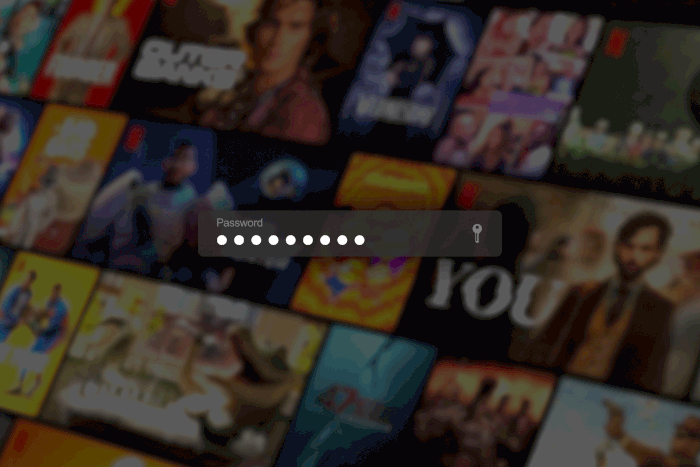
Everyone — from those actually paying to the ones still bumming a log-in — wants to know how Netflix’s crackdown on password sharing will affect them. Restricting a behavior widely seen as acceptable (even caring!) is always going to be risky. It’s the kind of drastic move that Netflix says actually grew subscribers — and it’s a worst possible outcome for people still looking to stay on their parents’ accounts. These results may or may not change the way we use streaming services in general, should Netflix’s competitors pull from the playbook. Disney+ and Hulu will be the first streamers to crack down on passwords in way that’s similar to Netflix’s account sharing limits, and Max will follow with its own restrictions later this year.
In light of that, it’s probably a good time to reacquaint ourselves with what exactly the password-sharing rules are at the major services. We reached out to seven of them to see where they stood on the issue. Here’s how they responded:
Max
The David Zaslav–run streamer has been careful to include clear language in its FAQ pages specifying account use “for everyone in your household,” though it has never really been enforced outside of that. A spokesperson for HBO Max (before it became Max) confirmed that fact to us last year, stating, “We anticipate that people living in the same household may share a single account/password, which is permitted in our user agreement. We are aware that password sharing outside of the household does occur and we discourage that activity.” But that stance seems to be changing: The company is planning to proactively discourage that activity by implementing a crackdown in late 2024 and 2025, according to a March 2024 presentation given by JB Perrette, Warner Brothers Discovery’s head of global streaming and games.
Disney+
Now, Disney stands for family! And family can be anywhere in the world; they can be your chosen family (a.k.a. your friends) and they can be your random ex-boyfriend’s best friend’s roommate. But it looks like money is thicker than blood, as Bob Iger has reiterated this week during the company’s earnings call that “improper” password sharing will be dealt with this year. The streamer has mass-emailed its subscribers, warning that a March 14 update to the user agreement prohibits using “another person’s username, password, or other account information” and adding that there will be “limitations on sharing your account outside of your household.” It also revealed it will be following Netflix’s lead in prompting users outside the household to be added for an additional fee, but there were no further details.
Hulu
The Disney+ stance applies to this Walt Disney–owned streamer as well. Hulu has been sending out emails to subscribers this week as well, outlining a new change in their subscriber agreement saying that, “We’re adding limitations on sharing your account outside of your household, and explaining how we may assess your compliance with these limitations.” The agreement change will go into effect on March 14 for current subscribers. A rep for Hulu provided us with the email sent to subscribers and added that they are actively exploring how to address account sharing across our platforms. Expect a password crackdown for these Disney streamers soon.
Prime Video
Amazon seems to be not too concerned with password sharing for its streamer. It’s a multi-use membership that is used to having many people accessing through one paid account. A Prime Video rep confirmed to us that Prime Video has no updates. You can read up on the “Amazon Household” feature, which is explained on the company’s FAQ pages. Basically, many family members can share an account and Amazon will gladly store multiple card information for quicker purchases, but the latter doesn’t really concern Prime Video.
Peacock
As a Peacock representative disclosed to us last year, “We currently aren’t making any changes to our policies,” in response to the possibility of stricter password sharing. After a follow-up, we can confirm that still holds true. It makes sense, as the streamer is still growing. It got rid of its free tier a year ago, in an attempt to convert those users to more of its paid subscriptions. And that sentiment is still true terms of its current password-sharing policies, or lack thereof, Peacock does not specify much else beyond allowing for “three concurrent streams” at a time.
Apple TV+
Reps at Apple TV+ did not care to respond to our requests for comment on its password-sharing policies. But we believe the streamer closely relates to Prime Video on this matter. Apple TV+ isn’t Apple’s main product. It actually has multiple different memberships for its Music, Fitness, News, and Arcade platforms and can be bundled all together with TV+ through Apple One. And all of those can be doled out to different people through Apple Family, which accommodates up to six people.
Paramount+
I’d like to think the Paramount Global streamer would focus on clearing up the confusion on its “with Showtime” moniker — the two platforms are now merged — before it cracks down on password sharing. And that seems to be the case for now. During a Paramount earnings call in November 2023, CFO of Paramount Global Naveen Chopra answered investor questions on the matter of password sharing, saying, “We don’t see that as a major headwind to our growth efforts” for Paramount+ with Showtime, but that they would “continue to monitor” the situation.
This post was originally published March 3, 2023, and has been updated.


